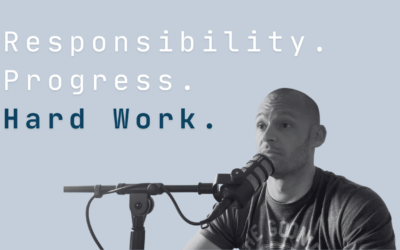The sky is falling! We often know this isn’t the case, but when things get tough, it’s hard not to think that Chicken Little was onto something. After all, many times it’s not just an acorn falling from the sky but the entire oak tree coming down on our heads. So, how do we deal with life’s difficulties? How do we cope? Many of us drank and did drugs until our lives had become unmanageable. Chicken Little got all his friends killed. I’m going to suggest that we regroup and brainstorm some alternatives. That brings us to this guide, where we’ll explore a number of practical coping mechanisms we can use to fortify our recovery and reach long-term sobriety.
Understanding the Importance of Coping Mechanisms in Recovery
Coping mechanisms are essential tools for individuals in recovery from drug and alcohol addiction. These strategies serve as a means of managing stress, coping with cravings, and navigating triggers that may lead to relapse. By incorporating practical coping mechanisms into your daily life, you can build resilience, strengthen your resolve, and maintain sobriety even when times get tough.
1. Develop Healthy Habits and Routines
Establishing a structured daily routine is a cornerstone of successful recovery. A routine provides stability and predictability, helping individuals stay focused and grounded during the ups and downs of recovery. Incorporate healthy habits such as regular exercise, nutritious meals, and adequate sleep into your daily schedule. Structured routines create a sense of purpose and direction, reducing the likelihood of succumbing to cravings or triggers.
2. Practice Mindfulness and Stress Management
Mindfulness techniques can be powerful tools for managing stress and cravings in recovery. Incorporate mindfulness practices such as deep breathing exercises, meditation, or yoga into your daily routine. These practices cultivate self-awareness and emotional resilience, allowing individuals to navigate challenging emotions without resorting to substance use. Additionally, engage in stress-reducing activities such as journaling, exercise, or listening to calming music to alleviate tension and promote relaxation.
3. Build a Support Network
Recovery is not a path to be traveled alone. Surround yourself with a strong support network of friends, family members, and fellow peers in recovery. These individuals can provide encouragement, accountability, and understanding during times of struggle. Attend support group meetings, such as Alcoholics Anonymous or Narcotics Anonymous, to connect with others who share similar experiences and challenges. Building a supportive community is instrumental in maintaining sobriety and fostering personal growth.
4. Identify and Avoid Triggers
Identifying and avoiding triggers is crucial for individuals in recovery. Triggers are people, places, or situations that evoke cravings or temptations to use substances. Take time to identify your triggers and develop strategies to avoid or deal with them effectively. Whether it’s avoiding certain social settings, establishing boundaries with toxic relationships, or practicing assertive communication, proactively managing triggers is essential for maintaining sobriety.
5. Set Realistic Goals and Celebrate Progress
Setting achievable goals is essential for maintaining motivation and momentum in recovery. Break down large goals into smaller, manageable steps, allowing you to track progress and celebrate milestones along the way. Whether it’s achieving a certain number of days sober, completing a treatment program, or pursuing educational or career aspirations, each milestone represents a significant achievement worth celebrating. Reward yourself for your accomplishments, whether it’s treating yourself to a favorite meal, indulging in a hobby, or spending quality time with loved ones.
6. Seek Professional Help When Needed
Finally, don’t hesitate to seek professional help when facing challenges or setbacks in recovery. Whether it’s attending therapy sessions, participating in outpatient programs, or seeking guidance from a trusted counselor or addiction specialist, professional support can provide valuable insight and guidance. Remember that seeking help is not a sign of weakness, and can be instrumental in overcoming obstacles on the path to sobriety.
Conclusion: Empowering Recovery Through Practical Coping Mechanisms
In conclusion, practical coping mechanisms are essential tools for individuals in recovery from drug and alcohol addiction. By utilizing the strategies mentioned above, individuals can navigate the challenges of recovery with resilience and determination. Remember that recovery is a continuous process and each day presents an opportunity for progress and growth. Through hard work and commitment, individuals can reclaim their lives and embrace a future free from the grips of addiction. Learn to cope — learn to conquer.





